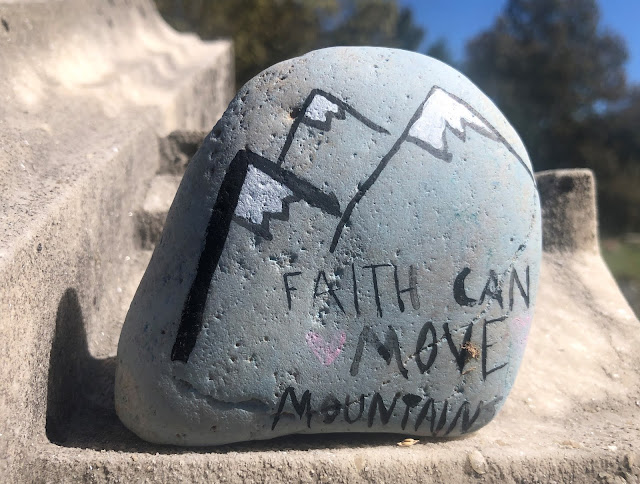 |
| At Brice's Cross Roads, an impressive monument honors both armies. (CLICK ON ALL IMAGES TO ENLARGE.) |
On June 10, 1864, cavalry commander Nathan Bedford Forrest, a military genius but a loathsome human being, whipped a numerically superior force at the Battle of Brice's Cross Roads. Confederates inflicted 2,610 casualties (vs. roughly 500 of their own), captured 200 supply wagons and more than a dozen artillery pieces, and added the lead bullet point to Forrest's impressive Civil War resume. The U.S. Army wasn't blessed with anyone with the high military IQ of the "Wizard of the Saddle" -- nearly its entire supply train was parked in a field within easy range of Confederate gunners.
Brice's Cross Roads scouting report: Fine interpretive markers but empty boxes for pamphlets. (Remarkably did not see mentions of "hail of fire" or "storm of lead.") Good walking trails. Battlefield visitors: Two. Hello waves by locals: Many. Rural Mississipians score high on "Blogger Friendliness Meter." Wildlife spotted: One dead armadillo, clawed feet pointing to the heavens.
Here's what else caught my eye:
 |
A MARKER NEAR THE CROSSROADS with the obligatory "battle-scarred" and "blood-stained floors" references.
 |
A MASS GRAVE for Confederate soldiers in Old Bethany Cemetery, near the crossroads.
 |
THESE WEATHER-WORN (AND PERHAPS BATTLE-SCARRED) GRAVESTONES in the cemetery, where fighting swirled, causing havoc in the then 11-year-old burial ground.
 |
THE VIEW FROM LOG CABIN RIDGE. From here, on an oppressively hot late-spring day, Forrest's artillery shelled Yankees as they crossed the narrow bridge across Tishomingo Creek, yards ahead of the car about to cross the modern span in the near distance.
A STATE HISTORICAL MARKER spelling out the awful result for the U.S. Army.
A FIELD where most of the 250-wagon U.S. supply train was parked. When the Federals retreated across the rain-swollen creek, the wagons clogged the bridge, causing massive panic among the troops. "It was like a scene from Dante's Inferno," a Federal veteran recalled decades later.
SHIMMERING LIGHT on Tishomingo Creek, near site of the bridge Union soldiers crossed in a panic. In 1953, locals discovered human remains in the creekbed -- probably from a Federal soldier -- along with a pocket watch and rusted remains of an army canteen. He was re-buried in Bethany Cemetery.
WOODS ALONG THE CREEK, where frightened Yankees fled during the Confederate onslaught.
A LIGHT-BLUE CLUNKER beyond the historical marker denoting the Confederates' second battle line.
WELL-EARNED RECOGNITION for the 55th and 59th U.S. Colored Troops, who helped buy time for their retreating comrades.
A WARNING that makes sense.
AND A MESSAGE WE ALL CAN EMBRACE NOWADAYS ...
Life. Enjoy the journey.
Always.
-- Have something to add, correct? E-mail me at jbankstx@comcast.net
SOURCE:
-- Vicksburg (Miss.) Evening Post, Oct. 22, 1906.










Enjoyed this. I've never visited this one and I appreciate the virtual tour. Thanks
ReplyDeletelove this! Sometimes its the little things at a battlefield park that make it most memorable and relatable!
ReplyDeleteRoger Pinckney Daufuskie
ReplyDeleteIf anybody doubts his character, google & read "The Pole Bearer's Speech"
Roger, I completely agree with you. I have read it. He also left the Ku Klux Klan because it became too violent. I really do not appreciate it when an author injects their own ad hominems onto someone whom he did not know, and projects the USA of 2025 onto that of 1864. It really annoys me.
DeleteA good book to judge the proper character of Forrest is by Lochlainn Seabrook ... A Rebel Born - A Defense of Nathan Bedford Forrest".
ReplyDeleteAgree. Forrest was an interesting and complex character. He was a product of his time and place.
DeleteBiased but definitely dishonest attack on a true American hero, NB Forrest.
ReplyDeleteHe was NOT a "Loathsome human being"!!! You might need to read a few books on NBF!
ReplyDeleteRight on!!!
DeleteI like Nathan Bedford Forrest. He was not loathsome. I would gladly serve under him. Sherman was actually loathsome.
ReplyDeleteVery interesting visual tour of the Battlefield. I recently attended the 160th Reenactment and it was a first class event. The Brice’s Crossroads Foundation has done a lot to promote the Battlefield. My first time to visit but well worth the time invested. Several tours were offered and were excellent.
ReplyDeleteThis comment has been removed by the author.
ReplyDelete
ReplyDeleteGeorge Cowan1:04 PM
John, this is George Cowan. I am Mat Dunn's grandson and helped you with information on him and the family for your Franklin blog. I will be blunt. Keep your opinions to yourself. You obviously have not read about NB Forrest after the war, and I am not interested in your projections of 2025 USA values onto someone who was a product of his time and place in 1864 America. He was indeed an interesting and complex character, but keep the political correctness to yourself.
...otherwise a good article.
ReplyDelete